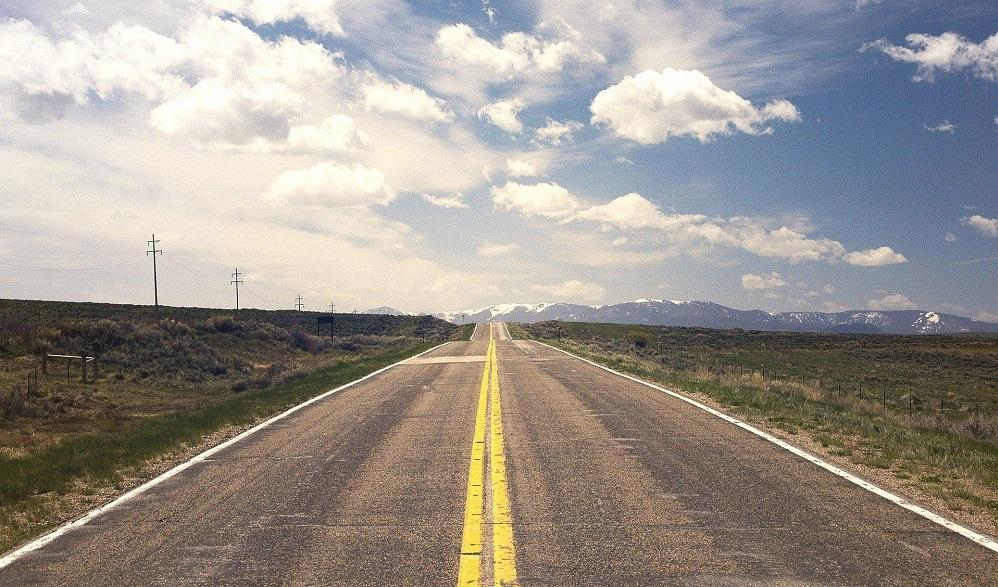5 Stages of Spiritual Growth, or How You Learn to Really Love Allah (S)
Faith
|
Aug 12, 2020
|
8 MIN READ

By Inas Younis
The late psychiatrist and best-selling author Scott Peck once noted that when religious people came to him in emotional pain, they frequently left therapy as atheists or agnostics. On the other hand, if atheists, agnostics or skeptics came to him in pain or distress, they frequently left therapy as deeply religious people.
Same therapy, same therapist, but totally different conclusions.
According to Peck, People will have radically different responses to the same therapeutic interventions because we are all at different stages of our spiritual development. Peck outlines these four stages in his best selling book, The Road Less Traveled. And although there is no predictable pattern to spiritual growth, most of us almost always start at stage one, because all of us start our lives as children.
The following stages are subjective summaries loosely based on Peck’s book and multiple other resources – stage five is of my own observations. Chances are you may find yourself in one of these stages.

Stage One
If you are in stage one of your spiritual growth, you are a whim-worshiping little brat and all your relationships are self-serving and manipulative. Of course, you won’t admit it because, let’s face it, you are also a liar. This stage is generally populated by children, and barring any major childhood trauma or neglect you will most probably grow out of this stage rather quickly.
If however you get stuck and remain here into adulthood you might end up in jail or become a dictator or demagogue. Thankfully, the vast majority of us will move on to stage two.
Stage Two
You are now practicing an organized religion. You observe certain principles. The problem is that you follow them religiously, which makes you a literalist. You cannot distinguish between the letter of the law and its spirit, which makes you a fundamentalist. If you want or need clear black and white answers to life’s big questions, you will find them in stage two. But, be careful. This stage is easily threatened by any change and will require you to repress your curiosities. Fortunately, most people either graduate into stage three or straddle the fence between this stage and the next.
Stage Three
This is the stage of doubt. You are not sure what you are doubting: Religion, God, society? But, it does not matter because you are a good person, and you do good things. You have finally evolved the ego of a true thinker. But, you miss God. You have become too logical for your own good.
You start to feel anxious. You remember how good it felt when you were innocent enough to think that the world was black and white. You miss that feeling of certainty. However, you are too smart for blind faith. You wish it were not so, but it’s too late. You know too much!
Stage Four
At some point, the anxiety becomes too overwhelming, and you decide that if your ultimate purpose is to unite with God then you should be willing to do it at any cost. Besides, you really cannot afford to be in soul-searching mode forever. Your time is up. Welcome to stage four — mysticism.
To be a mystic, you must be willing to let go of all your worldly attachments until nothing stands between you and God, not even religion. You decide that you will not be able to induce a pure and pious state of mind if you continue to hold on to the arrogance of certitude. So, you become uncertain, which you interpret as a sign of your own humility.
After all, who do you think you are? A Muslim, a man, a woman, a doctor or engineer? You can be none of these in the eyes of God, for all of these are just worldly formulations. You conclude that the only way to completely identify with God is to relinquish your identity.

Image source: Pixabay
At this fourth and seemingly final stage you have it all: The car, the career, the kids, and you want to know what’s next. You feel a bit empty and depressed, so you turn to spiritual people and books. You start to think outside the box because you are beginning to suffocate inside of it.
You embark on a search for “like-minded people” who regret to inform you that if you want to move forward in your spiritual journey you will need to relinquish that which made you so successful in stage three: Your ego.
As you start to undergo the transformation from being a monotheist, where there is only one God, to a mystic, where there is only God, you begin to see things with greater clarity, which gives you an immediate confirmation that you are heading in the right direction.
You start believing that you are seeing life with God’s eyes, the eyes of total mercy and no judgment. You not only start reading poetry, you will finally understand it. You will be able to relate to Rumi for the first time. You will post his words on your Facebook page, which you have not been able to give up yet (but are working on it).
Status Update: Why should I see? I am the same as He. His essence speaks through me. I have been looking for myself! — Rumi
Your stage two friends will call this shirk (idolatry), but you will call it enlightenment or nirvana. After all, what do they know? You are two stages ahead of them. You will think you have abandoned your ego, but you have not. You have merely exchanged an ego built on accomplishments for an ego inflated with spiritual pride. You will start to feel proud that you have no pride.
You will become eloquent of speech, and you will interpret this as a sign that you are being inspired by God. You feel high even though you are not taking any drugs, including that Xanax you used to carry around when you were a stage three doubter. You are high on the divine mysticism of a reality unhampered by human constructs and responsibilities.
Stage two people will abandon you, but stage three logicians will explain the scientific basis for your euphoria. They will lend you a copy of Brain and Belief and Hardware of the Soul and explain that you are artificially inducing a neurological state that has nothing to do with any real or objective truth. You will lend them a copy of The Power of Now by Elkhart Tolle and some other book by Deepak Chopra.
You skim through their recommendations and decide you do not care if you are artificially inducing a euphoric state with generic mantras and meditations, because generic is good and branding and identity are all worldly attachments — and you are above all that. You have started writing your first book, and Oprah might even have you on her show.
You profess to have achieved happiness by renouncing the world, but you realize that you can only sustain such happiness if the world does not renounce you. You need people to continually confirm that you are on the right path by seeking you out, asking you to speak, rubbing your robes and kissing your feet. You are desperate to feel like a master, because you are beginning to realize that you have become a slave, not to your ego, but to your insecurities.
You are living large now, and you think you are special, but you are completely oblivious to the gazillion dollar industry evolving out of the rhetoric of your newfound religion. A million books and manuals are being churned out to help people create their own path. A path to what you ask? To God, your publisher reminds you.
But you don’t want to call him God anymore because you do not want to exclude anyone, so you can call Him the feminine spirit, divine energy or kumbaya. After all, names are just worldly abstractions.
The more people praise you, the more of an imposter you start to feel. You realize that what started out as a quest to detach yourself from the world has got you more attached to it than ever before.

Image source: Unsplash
You begin to realize that the attempt to get close to the light of God without the shroud of repentance and humility can only get you burned. And, that peace is achieved through acts of practical compassion, not esoteric theology that you cannot prove one way or another.
You decide that although you are not opposed to inducing mystical experiences through prayer and fasting and other forms of worship, you are opposed to the assumption that such experiences can have any kind of social implications. They are personal, and so long as they remain personal they will enlighten you. The minute they are offered up for public consumption they can corrupt you and everyone around you.
So where do you go from here?
Stage Five
Stage four does not seem to be working out too well. So, congratulations we just invented stage five. In stage five you will realize that you can only move forward by moving backward. But, this time you will not do it out of love or fear of heaven or hell but out of true love for God. You will not do it out of blind faith but out of total conviction. You will not observe the rules out of superstition but out of discipline and humility.
You will go back to your community and stand side by side with the literalist and the whim-worshiper, and you will be tempted to say, I am better than you. But, you won’t because you have been through too much to actually believe it. And although you are going through the same exact motions as all the other blind followers in your midst, you know that your intentions are one hundred percent different.
You finally feel that you can have a more intimate relationship with God just by standing humbly among your peers than you could have ever achieved on a mountaintop, temple or a retreat. You are close to God, not because you know Him but because you know that he is the only one who knows you; The real you.
Who do you think you are? You are a slave, not to your ego, not to your insecurities but to your own unique divinely assigned nature. Nirvana, eureka, Allahu Akbar: You realize that you are finally free of the world.
You start to enjoy more meaningful relationships built on true love and not the spiritual industrial complex. You not only start to live in this world, but you become a vital part of it. You sit, reflect and remember one of your favorite verses from the holy Quran. You decide to log onto your Facebook account and type:
Status update: “Then which of the favors of your Lord will you deny?” (55:16)
No one clicks LIKE, and you don’t even care.
Inas Younis is a Kansas City-based freelance writer and commentator. Her opinion pieces and personal essays have been published in various websites and magazines. Inas is an active volunteer in several interfaith initiatives and serves on the board of the Sisterhood of Salaam Shalom. Her work was featured in an anthology titled “Living Islam Out Loud.” This piece originally appeared in Altmuslim.
Subscribe to be the first to know about new product releases, styling ideas and more.
What products are you interested in?

